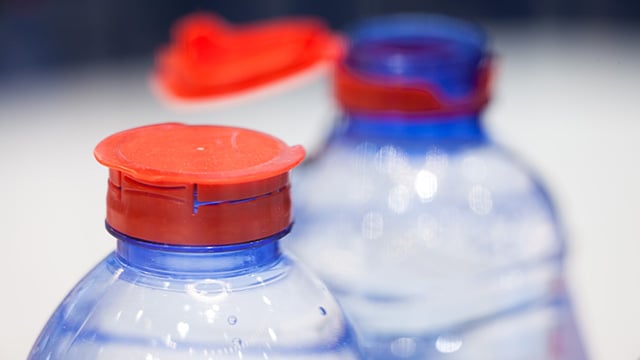Think of a bottle of water – and what we expect from it. We want the content to be fresh and the fizz to be preserved if the bottle contains carbonated water. We also want to be able to close the cap back on after taking a drink – and we do not want to see leaks or any contamination – even if the bottle falls over or gets shaken about.
The fact is bottles have important jobs to do, including keeping the contents securely enclosed and yet easily accessible. As the working part of the bottle, the top must satisfy high requirements in terms of functionality. Also, in order to reduce the risk that caps are dispersed into the environment, the EU Single Use Plastics (SUP) directive adopted in 2019 requires that caps and lids stay attached to the beverage containers from 3 July 2024 onwards. All this places tough demands on design and manufacturing precision and, especially, material properties.
Today billions of plastic closures are manufactured every year mainly using polyethylene and sometimes polypropylene. The demand of bottled water is expected to grow in developing countries where consumers want safe drinking water that the public water systems are not always able to provide.
“LyondellBasell offers a range of products in its Hostalen and Purell product ranges for this application,” said Mathieu Lecomte, Marketing Manager for Healthcare and Caps & Closures in Europe. “Our customers serve all major beverage companies around the world. Chances are high that if you open a plastic cap, it is made of our material.”
The good mechanical properties of these materials allow the production of a thin-walled cap that uses as little polymer material as possible but tightly seals the bottle. This quality feature also allows for the production of tethered caps. Furthermore, it prevents cracking of the closure which is a typical result if exposed to elevated temperatures for long periods and built-up pressure. The addition of a special additive to the plastic mix minimizes the force needed to remove the cap – even with a build-up of sugary deposits around the screw neck.
Caps and closures perform a multitude of roles in our everyday lives and yet are easily taken for granted. In reality, their combination of dependable functionality and aesthetic appeal contributes greatly to the image of a product and its user-friendliness. It is a tall order – but one that LyondellBasell products make possible every day.
To connect with a sales representative, contact us here.



